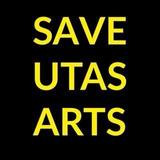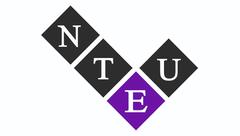The Fortnightly
WEEK THIRTEEN, SEMESTER ONE, 2025



Surprise,We’reBack!
In the last week the University of Tasmania announced proposed changes to the College of Arts, Law, and Education (CALE). This ‘change proposal’ will span multiple departments within the Arts. Many of you will have read our Week 12 Edition that was our final Fortnightly for the semester, however, we at Togatus felt that this issue was so pertinent that we had no choicebuttopublishaspecialeditiondedicatedpurely tothischangeproposal.
Withinthiseditionwehavearticlescoveringinterviews conducted with University representatives, staff members, and students, as well as economic analysis of the alleged ‘budgetary restraints’. Additionally, we look at what the potential benefits of this proposal could be. On the loose-leaf flyer you will find statements from relevant stakeholders, the TUSA, the National Tertiary Education Union (NTEU), and the studentrun‘SaveUTASArts’campaign.
Sohowhavepeoplerespondedtothisproposal? Consistentlythemainconcernsthathavebeenraised are:
1.Thetimelineoftheconsultationandimplementation period
2Thecommunicationprocessregardingthisproposal
3Thejustificationofbudgetaryrestraintsasthemain *driver* Let’sbreakthesedown.
We spoke to Professor Lisa Fletcher (Pro Vice ChancellorGraduateResearch&LeadAcademicCALE) and asked her what had informed the University’s decisiontoruntheconsultationperiodnowandwhether she thought that was appropriate, she clearly articulated that to factor in for the busy period the Universityhadincreasedtheconsultationperiodtofour weeks(opposedtothestandardtwo)andthatnoperiod oftheyearisperfectforconsultation Thisjustification has clearly not passed the UTAS community pub test. ProfessorFletcheriscorrectinsayingthatthereisno

perfect timing when the University runs multiple study periods, however, there definitely is a worst time Additionally, it was unclear as to why the University running multiple study periods is relevant when this proposal is impacting the Arts, a discipline that is all taught within the standard study periods…
Secondly, for many staff and students, the way in which the proposal has been communicated has been increasingly concerning. For many students, communication has been patchy and informal, resulting in increased anxiety and uncertainty
After the proposal was made to staff, and the inevitable and predictable rumour mill started turning, other non-directly impacted faculties provided statements to students For example, Dean of the Law School Professor Gino Dal Pont, provided a statement via email to all law students Dispelling concern and outlining elements of the proposal that he was able to share and how they would, or wouldn’t, impact those students. As of the time of publication, no formal collective statement has been made to the directly impacted Arts Students As of midday yesterday, the slide deck of the change
proposal presentation was made available to students via SharePoint, the beating heart of student communication However, this 58 slide document comes with no explanation or translation of the context or the University’s jargon. Finally, this proposal essentially outlines that the budgetary restraints on the institution are so severe that the University must take such drastic action as to remove certain majors completely. As a result of some of these changes, there will be no German or Indonesian taught at a tertiary institution anywhere in Tasmania
Additionally, numerous student-facing teaching staff will either be offered voluntary redundancies or be issued forced redundancies (this is the element many hold great concern with) For many people, this is a hard rhetoric to accept, that these restrictions are so severe that we have no option but to remove these courses and staff members, but that simultaneously a review of executive level salaries is not only entirely unnecessary but inappropriate.
Keep on reading to know more….
The proposed changes include but are not limited to the following: a merged Humanities and Social Science school, a reshaping of the Philosophy discipline, the removal of German and Indonesian as Majors, the discipline of Media being merged with Fine Arts and Humanities, 13 full-time staff cuts across effected disciplines, and a restructuring of HDR (Higher Degrees by Research).
The Togatus team chatted with Professor Fletcher about her thoughts on the proposal as well as the University’s stance Specifically, we asked her what she would suggest Tasmanians who want to study those cut disciplines do, and she provided no clear response. Prof. Fletcher said that there is “only a small number of students who are impacted here actually”
and wanted to make it clear that “we are not stripping out large or centrally important parts of the curriculum at all.” According to Prof. Fletcher, students who want to undertake those specific disciplines are already being “provided support” to study online and with other institutional providers moving forward due to “low-numbers” Currently, many impacted disciplines such as Tourism are in a teach-out phase, with no commitment to potential or future students in these areas.
Changes are likely to be implemented following the four-week consultation period which is set to end on the 12th of June. With waves of uncertainty filtering the campus, we asked Prof. Fletcher if the university could change their plan after this consultation period,

for which Prof. Fletcher replied with “absolutely”, whether this could lead to more or less cuts to the arts is up in the air. Prof. Fletcher narrowed the causes of these changes to low enrollment numbers and an inability to financially sustain these disciplines “Right now we don’t have our staff profile, course offering and the number of students who are coming to study with us, in balance,” she says. When asked about
whether these budgetary cuts should be actualised within the executive/management teams as opposed to teaching staff, Prof. Fletcher reiterated that this is ‘phase two of a deep change process ’ that organisational cuts were made at the end of last year which ‘disestablished the college model’, resulting in ‘significant savings’ being achieved as a result.
Ella Vanderzwan
In 2023 UTAS made a deficit of $10.8 million. This seemed to make UTAS nervous about their budgeting As a result, UTAS is cutting costs everywhere they can, this of course, inevitably includes Arts units across the university. While the deficit rightfully made people nervous, what happened to the surplus of $43.1 million reported in 2022? Was that not being used to safeguard UTAS after events like COVID-19? With more classes moving online, and intensive building upgrades on both the Inveresk, Sandy Bay and Hobart CBD campuses, UTAS has made their priorities clear with the new CALE proposal.
On April 1st of this year, The Parliamentary Standing Committee of Public Accounts finished their inquiry into UTAS’s financial position They concluded that “[The University of Tasmania] faces ongoing financial strain due to inflation, declined international student enrolments, and rising capital and operating costs.” Showing UTAS being in their financial conundrum, while international student numbers have gone down significantly due to COVID-19 and Federal Government policy, the inquiry found. However, in the UTAS 2023 annual report UTAS confirms that: “The strong asset position of the University and a largely stable domestic revenue base provides us with a foundation to manage the changing and complex economic, policy, and geopolitical environment in which we operate.” Cutting too many humanities classes risks this stable financial base that they are then able to use to navigate unknown circumstances To my knowledge there isn’t a publicly available report for 2024, so the 2023 information is the last available, and leaves a large gap in the statistics when it comes to analysis. Universities all around the world have been cutting Humanities courses, it will be an arguably more
impactful decision in a community like Tasmania, which already has limited higher education opportunities To look at an extreme example, if UTAS didn’t offer an Arts Degree, I honestly believe I would never have gone to university. The Arts is an area that is famously underfunded despite its cultural significance. Every book ever written, every movie ever produced, and every poster ever printed and stuck on a wall engaged with the Arts To see a part of education that is so integral seemingly overlooked because it isn’t reductively viewed as not fiscally sufficient is heartbreaking. While the current proposal does not include cancelling Arts Degrees, the pattern of cuts that it has presented is concerning Who dictates if classes have a “strong student culture” in a university where increasingly classes are being moved online? Additionally, if it is purely budgetary restraints that have influenced this decision then surely the reduction of one of the cheapest degrees to run is not the answer
With the amount of people in the high-level administrative roles in UTAS who have Bachelor of Fine Arts or Bachelor of Arts, they should be considering if they’re closing the door behind them for other academics and Tasmanians more generally What has the profit from 2022 been used on, if not to promote the next generation of thinkers in all areas? As Tasmania’s only University, with a monopoly on the market, UTAS must consider their place in making sure degrees are equitable, accessible, and representative of the educational needs of their community.


As the only University in the state, UTAS has an institutional responsibility to deliver a diverse higher education to the community to support every Tasmanian's educational goals, should they wish This means that the removal of specific disciplines has the potential to alienate Tasmanians from tertiary education all together, with options of moving to the mainland or going online, off the table for many For example, schools such as Lansdowne Crescent Primary School provide Indonesian as part of their curriculum, if these proposed changes are implemented then these students would be unable to continue their education in this state in prospective years
For many, this proposal begs the question as to if the budgetary restraints are as complicated as presented, why have the Arts been selected to carry the brunt of the fiscal responsibility? When being asked to respect and seriously consider the financial placement and viability of our institution, our consideration must holistically encompass the university in its entirety. Generally, there is often an expectation placed upon staff and students to accept and champion proposals and changes, however, the practical implementation of these agendas are infrequently applied to those who are presenting them. Situations such as these make it almost impossible for people to not consider why budgetary limitations are not being actioned within one of the most wealth concentrated departments at UTAS… Australia is an unfortunate outlier when it comes to wealth disparity and distribution within university salaries, holding one of the highest concentrations of income within executive

leadership.* While a stance proposing multi-level budget redistributions could likely be labelled as radical and unrealistic, we know UTAS is not afraid to lead a cause On one hand UTAS champions that they are a global leader in Climate Action and Sustainability, but simultaneously use international trends as justifications of other decisions Why not become a global leader in the valuation and protection of the Arts?
Criticisms may include that the arts aren’t providing you lifesaving medication, or giving you CPR However, UTAS has Bachelor of Arts graduates such as Dr Helen Szoke who became the CEO of Oxfam Australia and is currently leading the Review into Sexual Harassment in Victorian Courts As well as Bachelor of Fine Arts graduates from UTAS like Aisha Sherman- Noth who won the 2025 Glover Prize, exploring the relationship between humanity and nature While historically The University of Tasmania has been responsible for producing graduates that shape our future, is this now our closing act?
Lots of love the writers and editors of this Edition,
Evelyn Unwin Tew (BA -History), Beth Hanley (BA -Criminology) dual degree), Ineka Leffler (BA - Politics and Media), Ella Vanderzwan (BA-English), Kelsey Anderson (BA-Media).
*According to The Australian Institute, ‘While Uni ViceChancellors rake in millions, young researchers struggle to survive’, February 5 2025.
The opinions expressed herein are not those of the editors, the publishers, the University of Tasmania, or the Tasmanian University Student Association Reasonable care is taken to ensure that the content and information included is as up-to-date and accurate as possible at the time of publication, but no responsibility can be taken towards Togatus for any errors or omissions
If you have concerns or questions about anything that has been published, contact the Editor-In-Chief, Evelyn Unwin Tew, by email
ContactTogatus:
Email(andtosubmitarticles):togatusmagazine@gmailcom
Instagram: @togatus
Level 3, 1 Churchill Avenue, Sandy Bay, Hobart, TAS 7005


Togatus is printed on stolen land. We pay our respects to all Elders past, present and emerging.



“We are the Save UTAS Arts campaign.
We’re a group of students who came together in response to UTAS’s proposed cuts to the creative arts, humanities, and the jobs of thirteen valued staff members
These cuts aren’t just numbers on a page. They represent a deep loss to student experience and to Tasmania’s creative future.
When we began talking to fellow students, many hadn’t even heard the cuts were happening Those who had were shocked, saddened, and ready to act, but felt they had no clear pathway to speak up. With the semester ending, we realised many students might leave campus without ever finding out By the time they returned for semester two, it would already be too late.
That’s why we created @save utas arts: to spread the word and create a platform where student voices could be heard In less than a week, we’ve gained over 500 followers and built a space for students across disciplines to share what UTAS arts means to them.
Individual stories matter. It’s easy to overlook numbers on a spreadsheet, but behind every data point is a real person, with a future, a voice, and something they care about. We wanted to give those voices space to be heard. Across every submission, the message is the same: students want UTAS to invest in the arts, not cut them We believe in the future of UTAS That’s why we’re speaking out
You can share your story with us @save_utas_arts.”


“On Monday The TUSA President Jack Oates Pryor published a Media Statement
In their statement they said that TUSA, ‘recognises that changes to the current model are indeed required to improve staff and student experience’ but stated that change towards financial stability, while critically important, shouldn’t come at the expense of the experience on the ground for current or future students.
They described that TUSA did not oppose a change proposal, but that the way UTAS have gone about this particular proposal so far has left students feeling “out-of-the-loop, frustrated, and anxious about the implications”. They reiterated that they stand in solidarity with the NTEU regarding staffing cuts. You can find the full Statement on the TUSA website, or reach out to your elected Student Representatives ”



“The NTEU stands with our members who have had yet another change proposal dropped on them by university management, and in doing so we stand with students who are seeing their degrees changed around them and their favourite teaching staff sacked. There may be legitimate budget concerns that we as a university need to work through together, and if there are, our position as a union on this is firm: there should be no forced redundancies. If budget savings need to be made, it should not be forced on frontline educators and the professional staff that support them in their teaching, research, and ensuring that students get the education they deserve.
Our academic members are skilled and talented educators and researchers. The way that UTAS management have dropped these cuts on workers has been appalling In the context of the Irons Report into psycho-social risks in Arts and Society, they ought to be ashamed.
Our first demand is that UTAS extend the consultation period. To expect staff to respond to job losses and course and unit cuts over the last two weeks of the semester and while we are busy marking final assessments is insulting. We want to see genuine consultation about our workplaces and what it means for both staff and students. As is often the case, we fear that the consultation is a ‘conbriefing’ where it acts as window dressing on predetermined decisions Our members, and students, deserve better
Some of these decisions are incredibly short-sighted and ignore the responsibility that comes with being the only university in Tasmania. For the sake of the savings from just three positions, UTAS are intending to cut our language offerings in Tasmania in half The impact on this is that Tasmanians will no longer be able to learn German on the island, nor the language of our nearest neighbour in Indonesian. The follow-on impacts will be felt in primary and secondary schools in years to come It is a great disservice to all Tasmanians
We call on students to join NTEU members in demanding more from the university than short sighted course cuts and staff sackings. UTAS management can do better than this. Take the forced redundancies off the table, and engage with us in good faith so we can create the kind of university both staff and students deserve ”
On Monday we chatted with some student on the Sandy Bay campus. Here’s some of what they had to say:
“It feels like you’re sucking the life out the university”
“I just don’t think the humanities are valued.. and its fundamental”
“It sets a dangerous precedent”
“We should build the university and not make it smaller”
This proposal, like many things, is not entirely black or white While many people in the community are opposing many of the changes, some people are welcomesomepotentialimpacts Someoftheseare:
Consolidation into fewer administration roles means more staff are opened up to focus on studentinteractionsandteachingroles
This will increase University cohort cultural standards by removing majors that do not have a strong student culture (as discussed by Prof. Fletcher)
Combining different areas into one and having the Arts co-located in Forestry, will help foster a strongerArtscultureandidentityatUTAS HelpensureviablelongevityoftheArts EvidenceofUniversityinterestintheArts Pathways that could help some teaching staff who are considering retirement (as discussed by Prof. Fletcher, that some staff will opt-in to voluntary redundancies)